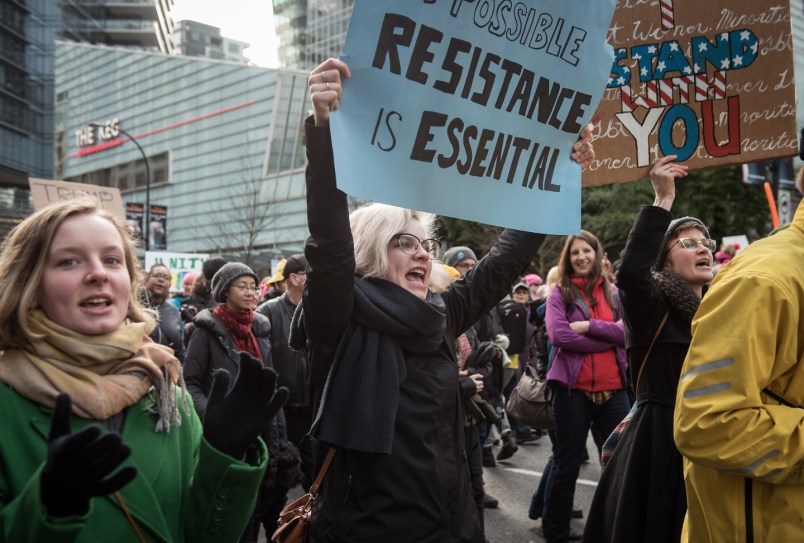The Editor,
On the weekend, thousands of women congregated in Vancouver and the Fraser Valley, joining their friends and allies all over the world in marching to demand women’s rights.
I’ll admit when the rain was thrashing against my window, I debated not going. But then I thought about comments I’ve heard from male politicians in the Tri-Cities, both those who I would usually think of as allies and those I wouldn’t, about how there is not a systemic problem with women getting involved in politics because two of the five Tri-Cities councils have more than one woman on them.
When there are more mayors named John in Metro Vancouver than women mayors, I would argue that there is still a long way to go, and this doesn’t address women of colour and women with disabilities, who face even more barriers stacked against their participation.
With the pelting wind and rain, women, men and children got up to march for many reasons. Some marched because women in Canada are still making 87 cents to the dollar compared to men in the same position, and those of minority and Indigenous status make less than that.
Some marched because women still don’t have access to the medical care they need, especially after assault experiences.
Some raised their signs because women are more likely to be affected by precarious work and discrimination or harassment, and must endure negative working conditions or face repercussions, including being fired. This is worse for migrant women, who come to take care of children, seniors and people with disabilities for low wages, and can be deported if their employer is displeased (the speaker on this topic at the Vancouver March was very moving).
Some people marched because even here in the Tri-Cities, women fleeing abusive relationships often go back to unsafe homes because, with the lack of affordable housing and transition housing, they have nowhere else to go.
There are many reasons to march but the point is we need to do more to promote gender equity in our communities, from schools to council chambers to Parliament. We need politicians of all genders to make sure that they make decisions with a lens of gender — and, I would add, racial and disability — equity. We need more supports to help raise women out of poverty and precarious work.
As the Tri-Cities try to address affordable housing, we need to ensure more housing for women and children in need, understanding single moms face discrimination in the rental market. The task can seem daunting but we can start small and see where we can get involved. One speaker at the march spoke of social isolation and suggested even just checking on the single mom in your neighbourhood to see if you can do something to make her day a bit easier.
I’m glad I went to the march but like many women, I look forward to the day we don’t have to.
Amy Lubik, Port Moody



